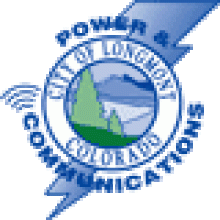Longmont City Council Approves Fiber Network
Longmont, Colorado, will move ahead with plans to offer fiber connectivity to the entire community. After presenting this business plan to the City Council, members voted unanimously on May 14th to support the measure. Scott Rochat from the Times-Call attended the meeting.
Residents stepped forward to express their opinions and all but one urged the council to "get it done."
From the Rochat article:
The plan projects a four-tier price structure. For residential rates, that's proposed to range from $39.95 a month for 10 megabit-per-second upload and download, to $99.95 for 100 mbps.
The study estimates that 35 percent of homes would choose to get their Internet service from the city, still leaving plenty of the field for the existing providers.
"Competition is good," Councilman Alex Sammoury said. "Just because we're a government entity doesn't mean the free market doesn't apply to us. If someone can do it better, more power to them."
The plan proposes to have the city provide Internet directly and work with a private partner for phone service.
Video service would not be provided, Roiniotis and the Uptown consultants said, because Internet video has eroded the market for traditional television.
Vince Jordan, LPC Manager, began the presentation and stressed economic development, education, and lifestyle.
Representatives from Uptown Services reviewed recommendations and the business plan. They answered about 3 hours of questions from council members, including skeptical members who want to avoid becoming the next Provo, Utah. Neil Shaw and Dave Stockton from Uptown Services provided some perspective between the two communities. They pointed out the large number of successful networks in states across the country.
Longmont had been prepared to incrementally expand the network using the cash on hand from the many years of dark fiber leasing. Such an expansion could be done without borrowing but would take a long time (more than ten years, likely) to get to everyone. This is the approach Danville, Virginia, has been using.



